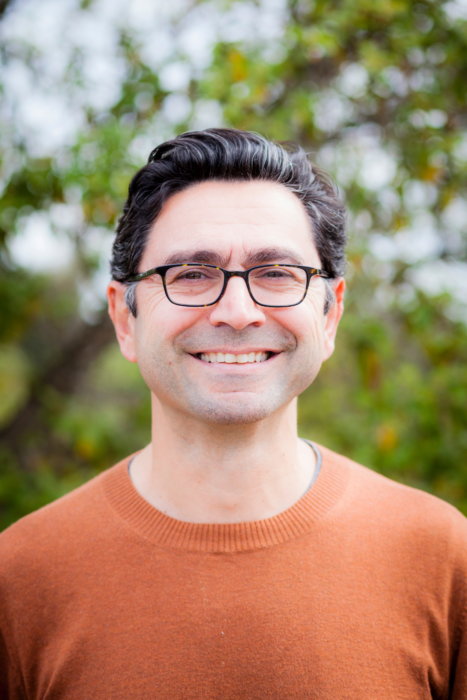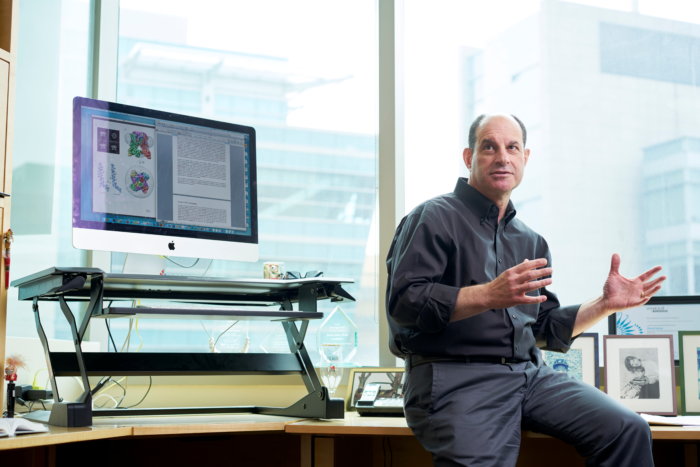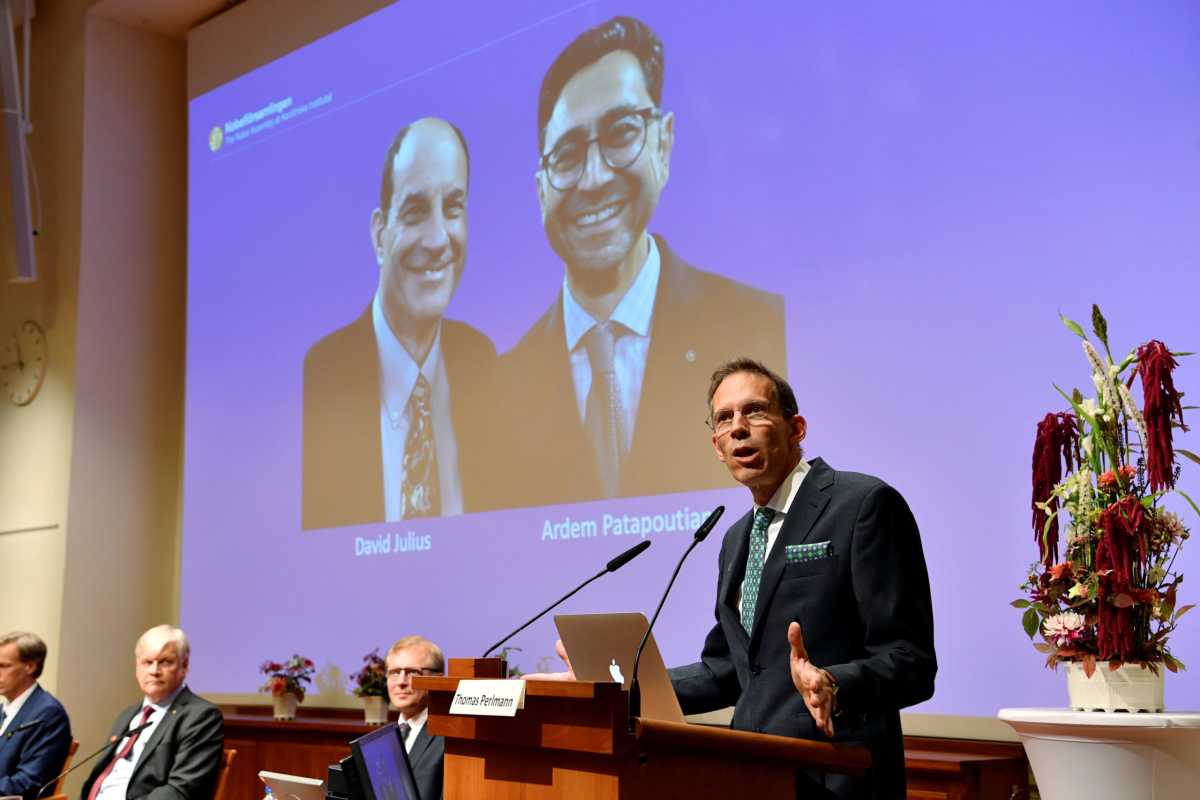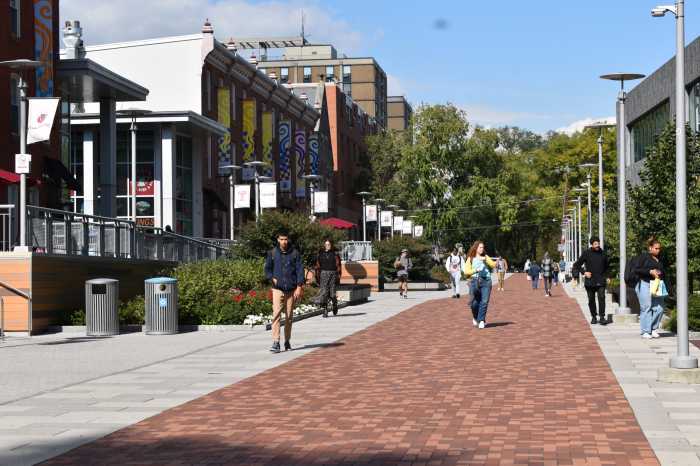By Johan Ahlander and Ludwig Burger
American scientists David Julius and Ardem Patapoutian won the 2021 Nobel Prize for Medicine on Monday for the discovery of receptors in the skin that sense temperature and touch and could pave the way for new pain-killers.
Their work, carried out independently, has helped show how humans convert the physical impact from heat or touch into nerve impulses that allow us to “perceive and adapt to the world around us,” the Nobel Assembly at Sweden’s Karolinska Institute said.
“This knowledge is being used to develop treatments for a wide range of disease conditions, including chronic pain.”
Patapoutian, who was born in 1967 to Armenian parents in Lebanon and moved to Los Angeles in his youth, learnt of the news from his father as he had been out of contact by phone.

“In science many times it is the things we take for granted that are of high interest,” he said of winning the more than century-old prize, which is worth 10 million Swedish crowns ($1.15 million).
He is credited for finding the cellular mechanism and the underlying gene that translates a mechanical force on our skin into an electric nerve signal.
“(For) us being in the field of sense and touch and pain, this was the big elephant in the room where we knew they existed, we knew they did something very different,” he said.
Patapoutian is a professor at Scripps Research, La Jolla, California, having previously done research at the University of California, San Francisco, and California Institute of Technology, Pasadena.
New York-born Julius, 65, is a Professor at the University of California, San Francisco (UCSF), after earlier work at Columbia University, in New York.
His findings were inspired by his fascination for how natural products can be used to probe biological function and he used capsaicin, the molecule that makes chili peppers spicy by simulating a false sensation of heat, to understand the skin’s sense of temperature.
At a news conference, Julius said the idea for the project came while shopping in the spice aisle of a supermarket when he wondered aloud whether anyone was doing such research, to which his wife replied, “Well then you should get on it.”
A challenge for researchers has been developing treatments that inhibit chronic pain without the blocking the ability of sensors to detect heat, which people need to prevent injuring themselves, he said.
“I think the work that we’re doing … will really help to have a rational approach to developing those kinds of drugs,” he said.
“Understanding the molecules involved, and the cell types involved, gives us clues as to how we can target these pathways to develop drugs that can be used for very specific types of pain situations that lead to hypersensitivity to temperature, or in some cases to touch,” he added.
Both laureates were caught off guard, according to the committee. Professor Thomas Perlmann, Secretary-General for the Nobel Assembly and the Nobel Committee for Physiology or Medicine, described them as “incredibly happy and as far as I could tell very surprised and a little bit shocked.”

The prestigious Nobel prizes, for achievements in science, literature and peace, were created and funded in the will of Swedish dynamite inventor and businessman Alfred Nobel. They have been awarded since 1901, with the economics prize first handed out in 1969.
The Nobel Prize for Physiology or Medicine, shared in equal parts this year by the two laureates, often lives in the shadow of the Nobels for literature and peace, and their sometimes more widely known recipients.
But medicine has been thrust into the spotlight by the COVID-19 pandemic, and some scientists had suggested those who developed coronavirus vaccines could be rewarded this year or in coming years.
The pandemic continues to haunt the Nobel ceremonies, which are usually full of old-world pomp and glamour. The banquet in Stockholm has been postponed for a second successive year amid lingering worries about the virus and international travel.
Reuters


































